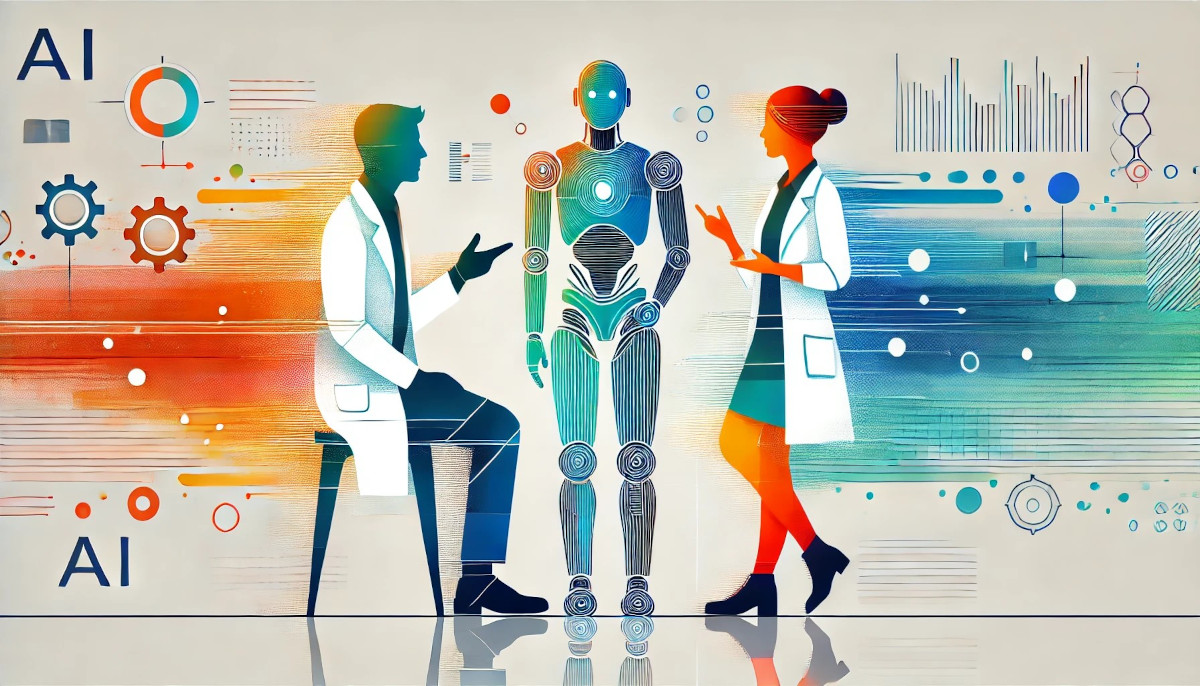News from the MCAA - Artificial Intelligence’s Expanding Role in Science and Research: A New Frontier for MCAA
Newsletter
How AI is Revolutionizing Scientific Research
Over the past decade, Artificial Intelligence (AI) has emerged as a transformative force in science. From the algorithms that personalise our social media feeds to self-driving cars that safely navigate busy streets, AI is quietly powering much of the technology around us— and the research community is no exception. AI is reshaping how research is conducted, pushing the boundaries of what we once thought would be possible.
AI isn't just another tool in a researcher's kit—it’s transforming the entire research process. Take, for example, a cutting-edge AI developed by DeepMind at Google. This AI, known as AlphaFold, has revolutionised molecular biology by predicting protein structures with remarkable accuracy. What once took scientists years of lab work can now be accomplished in a matter of days, enabling faster drug discovery and a deeper understanding of biological processes.
AI's impact extends beyond biology. In astrophysics, AI algorithms are helping scientists analyse vast amounts of data from telescopes to identify new celestial bodies, such as exoplanets, that would otherwise go unnoticed. In climate science, AI models are improving the accuracy of weather predictions and helping researchers understand the complex dynamics of climate change. These examples highlight how AI is becoming indispensable across diverse research fields.
The recent explosion of generative AI technologies has taken this transformation even further. AI is now more accessible and versatile than ever, making it relevant across all research disciplines and levels of expertise. Whether you're a PhD student or a principal investigator working in physics, literature, or social sciences, AI has something to offer. This broad applicability is set to revolutionise how we produce knowledge but also brings new challenges. How do we ensure scientists remain experts and don't become mere AI technicians? What ethical considerations should guide AI's integration into research? How can we collaborate with AI to achieve better scientific outcomes?

Leading the Conversation on AI in Science
At the Marie Curie Alumni Association (MCAA), we are deeply engaged with these pressing questions. With a community of over 22,000 members, including a growing number of researchers and professionals specialising in AI, we have been actively exploring AI's implications. Our thoughts and findings have been shared through newsletters and seminars, including a notable newsletter series in June 2023. But the conversation is just getting started!
As AI becomes more ingrained in our daily tasks—like writing, brainstorming, or even automating data analysis—it's crucial to explore how we can integrate these technologies to benefit all disciplines. The MCAA is uniquely positioned to lead this effort, thanks to our multidisciplinary community that spans all research fields and includes professionals such as engineers, project managers, and policymakers.
To harness these strengths, we have launched the General Interest Group (GIG) for Artificial Intelligence. Our mission is to explore how AI can enhance scientific research and ensure this powerful tool is accessible to all, regardless of expertise. Core goals include sharing and making accessible information, co-creating and providing training, and offering policy advice on AI's impact on research. We are committed to a bottomup approach, ensuring our members can focus on the AI-related questions most relevant to their interests. Whether it's using AI to analyse literature, navigating ethical dilemmas, or developing new skills, our GIG is here to support the community.
Get Involved with MCAA's AI Initiatives
If you're an MCAA member and want to be part of this exciting initiative, join the GIG on our website and ensure your notifications are turned on. Not a member, but still interested? Sign up for our mailing list to stay updated on our accessible seminars and material for the public. You can find all the relevant links on our Linktree. If you want to collaborate, we would love to hear from you. Connect with us on LinkedIn & Twitter or reach out directly by email at ai@mariecuriealumni.eu.
Whether you’re looking to deepen your understanding of AI, develop new skills, or contribute to the conversation on AI’s role in science and society, we invite you to join this exciting initiative—let’s explore the future of AI in research together!
Quentin Loisel
Coordinator of the MCAA Artificial Intelligence
General Interest Group
ai@mariecuriealumni.eu
@q5loisel
